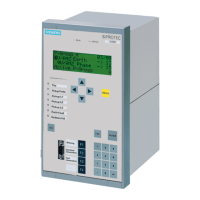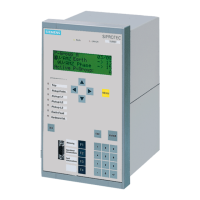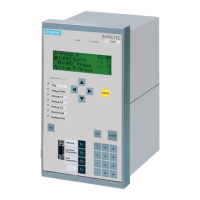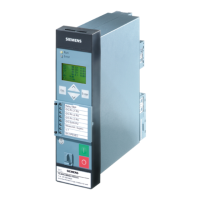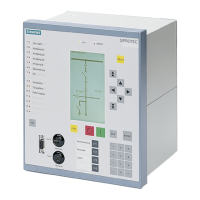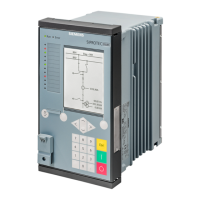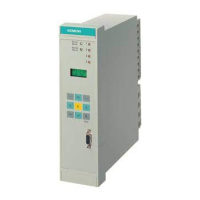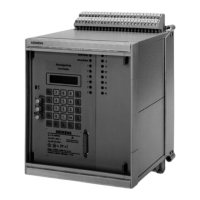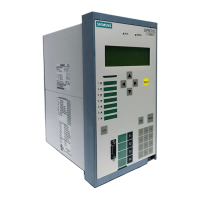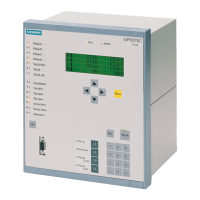1 Introduction
24
7SD5 Manual
C53000-G1176-C169-1
tance protection, or to emergency operation using an integrated time overcurrent pro-
tection, until communication is restored again.
The communication link can be used for transmitting further information. Besides mea-
su red values , bin ary commands o r other infor ma tion can be trans mitted.
As an alternative, distance protection can be used as backup protection, just as time
overcurrent protection is used for emergency protection; both protection functions
operate in this case independently and in parallel to differential protection at each end.
Protection
Functions
Generally speaking, two basic functions are available in the 7SD5 line protection relay,
namely differential and distance protection. One of the protection functions can be
configured at a time as the main protection function (Main1). As an alternative, differ-
ential protection can be selected as the main protection function, and distance protec-
tion as backup protection (Main2).
Recognition of short-circuits in the protection zone only with the measured currents is
the basic function of the differential protection. Also high resistive faults with small cur-
rents can be recognized. Even complex multiphase faults are precisely detected, as
the measured values are evaluated phase segregated. The protection system is re-
straint against inrush currents of power transformers in the protection zone. When
switching onto a fault at any point of a line, an undelayed trip signal can be emitted.
The basic function of the distance protection is the recognition of the distance to the
fault with distance protection measurement. In particular for complex multiphase
faults, the distance protection has a non-switched 6-impedance-loops design (full
scheme). Different pickup schemes enable a good adaption to system conditions and
the user philosophy. The network neutral can be isolated, compensated or earthed
(with or without earth current limiting). The use on long, high-loaded lines is possible
with or without serial compensation. The distance protection may be supplemented by
teleprotection using various signal transmission schemes (for fast tripping on 100 %
of the line length). In addition, an earth fault protection for high resistance earth faults
(ordering option) is available, which may be directional, non-directional and may also
be incorporated in signal transmission. On lines with weak or no infeed at one line end,
it is possible to achieve fast tripping at both line ends by means of the signal transmis-
sion schemes. When switching onto a fault at any point of a line, an undelayed trip
signal can be emitted.
The integrated time overcurrent protection function can be configured as a permanent
backup protection at all line ends, or as a protection function for emergency operation.
Emergency operation is a state in which the differential protection cannot operate, for
example because of a communication failure, and in which no distance protection op-
erating in parallel is available (e.g. because of a measuring voltage failure). The time
overcurrent protection function has three definite time overcurrent stages and one
inverse time (IDMT) stage; a series of characteristics according to various standards
is available for the inverse time stage.
Depending on the version ordered, the short-circuit protection functions may also trip
single-pole. They may operate in co-operation with an integrated automatic reclosure
(available as an option) with which single-pole, three-pole or single- and three-pole
rapid automatic reclosure as well as multi-shot automatic reclosure are possible on
overhead lines. Before reclosure after three-pole tripping, the validity of the reclosure
can be checked by voltage and/or synchronism check by the device (can be ordered
optionally). It is possible to connect an external automatic reclosure and/or synchro-
nism check, as well as double protection with one or two automatic reclosure func-
tions.
Other protection functions are possible in addition to the short-circuit protection func-
tions described above. A thermal overload protection has been integrated which pro-
www . ElectricalPartManuals . com
